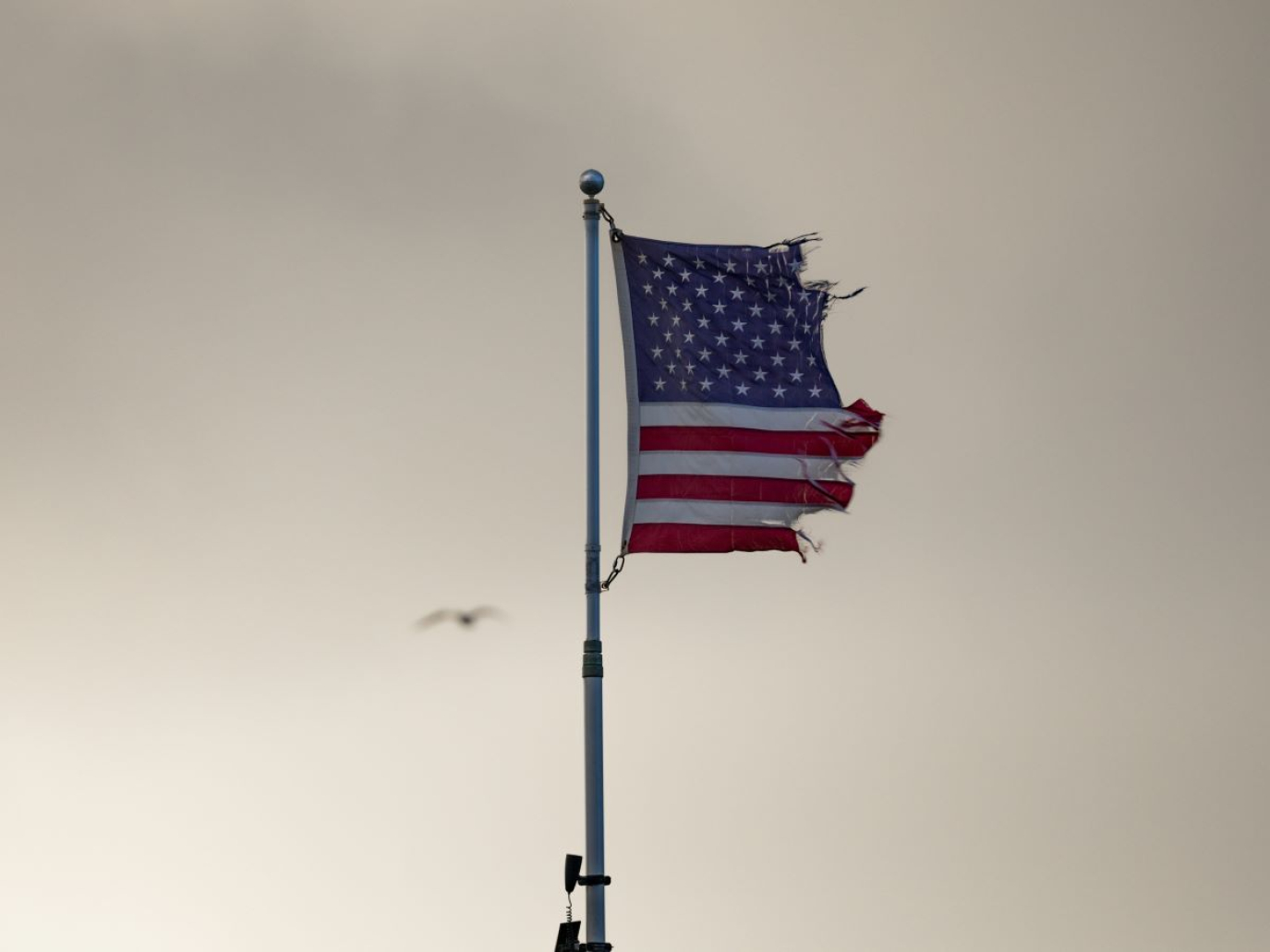
This article is also available in Italian / Questo articolo è disponibile anche in italiano
On 4 November 2008, I was among the thousands who gathered in Grant Park, Chicago, to witness the election of Barack Obama. I had only been a columnist in the US for a few months and had just started writing about American politics (I made my mark in publishing by creating thematic geographic maps). The air was thick with hope, with change, with the sense that, at least in part, things might improve in that complex, contradictory country that the United States of America has always been: a champion of ecology and democracy, yet at the same time a fortress of corporatism, hyper-consumerism, and petro-capitalism.
Today, ten months on from the election of Donald J. Trump and with it the worst conservative-populist restoration since the days of Ronald Reagan (show business creates monsters), that election night feels a century away. With each passing day, America sinks further into that murky mix of authoritarianism, environmental denial, ignorance, and bigotry. Ever more serious, ever more damnably alarming. It takes only a random glance at recent events and pronouncements to grasp the scale of America’s regression, and the fact that we are not sufficiently concerned about the direction taken by the Western superpower.
I was jolted by the indiscriminate use of the National Guard in American cities. On Monday, 25 August, Trump signed an executive order instructing his defence secretary, the macho Pete Hegseth, to establish “specialised units” within the National Guard, “specially trained and equipped to address matters of public order”: the clearest signal yet of his intention to expand the role of the US military in domestic police activities across the country.
The lesson of the Kent State massacre now lingers only in the Crosby, Stills, Nash & Young song. Even worse: at the very moment of signing the order, Trump remarked that “many Americans love dictators”, and then immediately clarified that he himself “is not a dictator”. Yet, strengthening the army against a targeted group of citizens (Black people, teenagers, the poor) already deployed first in Los Angeles and now in Washington DC, is hardly a choice in line with the traditional values of the White House. To underscore his fondness for authoritarianism, only hours later, he met the South Korean president, Lee Jae-myung, cheerfully noting that he would soon meet the despot Kim Jong-un. “I look forward to seeing him. He was very good with me,” Trump said, adding that he knew Kim “better than anybody, almost, other than his sister”.
Just a few weeks ago, the law with the most ridiculous name ever was passed: The Big Beautiful Bill. Large companies and certain manufacturing sectors will benefit from the introduction of the law, with significant tax cuts. Who will be destroyed by it? The entire green economy sector: tax incentives for wind, solar, and other renewable energy projects will be eliminated by 2027, with strict requirements imposed on developers to start projects.
The American Clean Power Association strongly criticised the law, calling it “a step backwards for American energy policy”, one that will cost jobs and push electricity bills higher. But the gravest consequence falls on struggling Americans. Under the law, ten million citizens will lose Medicaid, the public health insurance programme for adults and children of limited means.
Abominable, too, is the wholesale assault on universities. “Harvard is a JOKE,” Trump declared at the end of spring. “It teaches Hate and Stupidity, and should no longer receive Federal Funds.” Since then, America’s leading institutions have found themselves in his crosshairs, and not only progressive bastions, but Columbia, Cornell, Duke, Harvard, Penn, Princeton, Brown, and the University of California, Los Angeles. Nearly all of them have seen their funding cut, forced to win it back only by cancelling courses in social sciences, anthropology, and human rights disdained by Trump, scrapping DEI (diversity, equity, inclusion) programmes, and silencing any anti-Zionist protest (crudely branded as antisemitism, in concert with another ultranationalist, Bibi Netanyahu).
According to Todd Wolfson, president of the American Association of University Professors (AAUP), “This is obviously the most intense assault on higher education by the federal government in the history of the United States. Everyone is coming into fire.” However, to defend their interests, universities have complied. Harvard has closed its offices for inclusion and diversity.
Then there is geopolitics. Between an extremely dangerous trade war, insults to Europe, love for the most inveterate autocrats, glaring inability to manage the Russia-Ukraine war, unconditional support for the butcher of Tel Aviv, indifference towards the African chessboard, and an obsessive fixation on China, the United States has abandoned any pretence of doctrine. USAID, the American development cooperation agency, has been wiped out. A full-scale attack has been waged on UN organisations, cutting funding and hindering any negotiations, particularly those related to environmental issues, from climate change to the Plastics Treaty.
Finally, we must remember the racism worthy of a remake of Kristallnacht perpetrated by ICE and led by MAGA fan Kristi Noem, whom many commentators describe as cruel for shooting a puppy she couldn't train and for her lack of humanity towards anyone who is not a “true American”.
“I’m afraid to board a plane and leave the country,” an Indonesian-born taxi driver with a US passport and full citizenship confided to me recently. “What if they deport me when I come back, and I just disappear?
News like this makes the first Trump administration, with figures such as John Bolton and Rex Tillerson, seem almost moderate. One finds oneself nostalgic for the civic sense of George W. Bush. John McCain sounds like a titan of democracy. Almost anything is better than the foul-mouthed, nonsensical, vitriolic political rhetoric of the increasingly senescent Donald Trump. There are more than three years before the next elections. It will not be enough to close our eyes and hold our breath. We will have to endure this downward spiral, right to the bottom of its darkest abyss. And prepare ourselves to get out of it.
Cover: photo by Josh Withers, Unsplash



